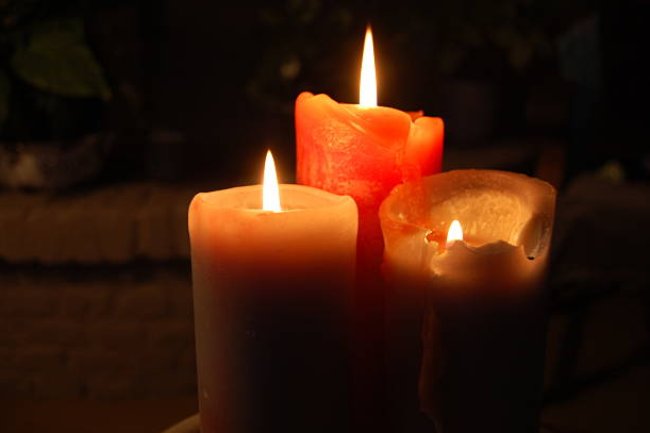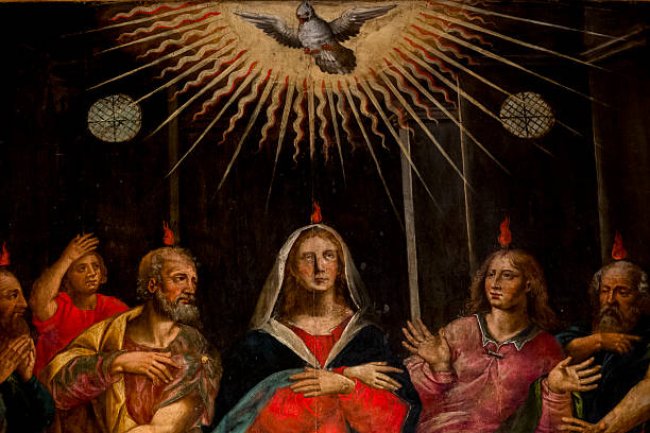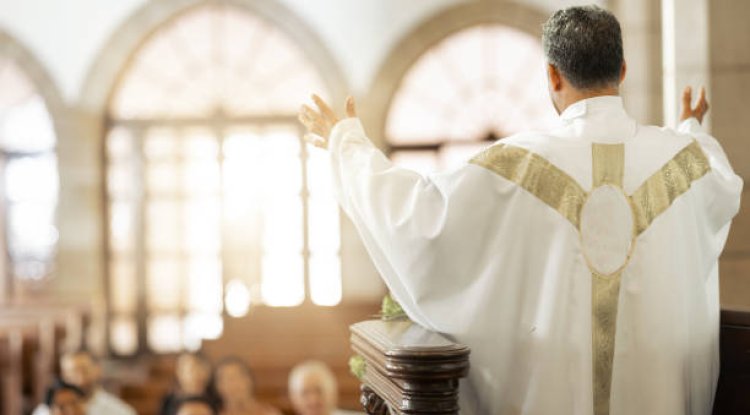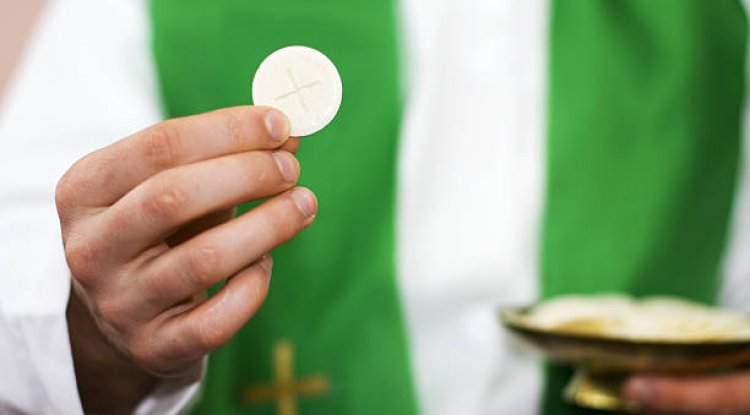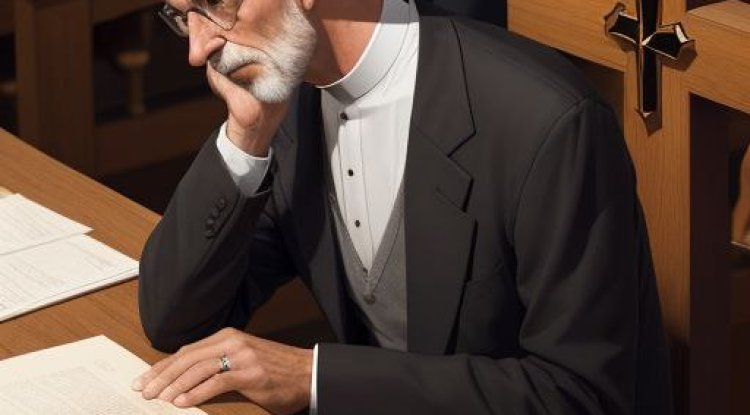CHRIST OUR HOPE OF SALVATION
HOMILY FOR THE FIRST SUNDAY OF ADVENT, YEAR B. Readings: Isaiah 63:16-17; 64:3-8; Psalm 80; 1 Corinthians 1:3-9 and Mark 13:33-37.
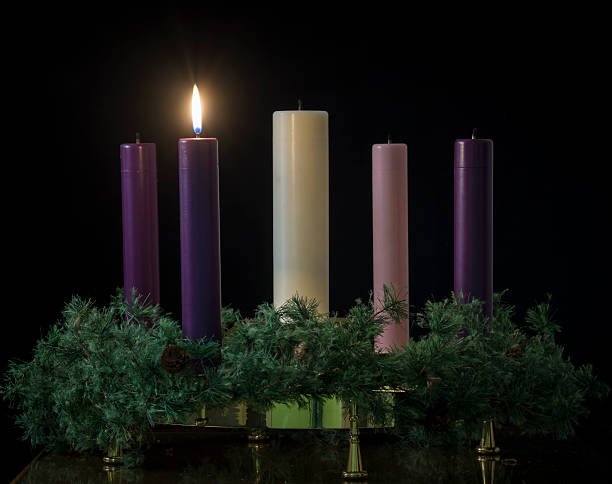
Return for the sake of your servant, the tribes of your heritage. O that you will tear the heavens and come down…” (Is. 64:1).
Today we celebrate the first Sunday of advent, which begins a new liturgical calendar, year B. and the weekday readings from year II. Advent has its origin from the Latin word “Adventus,” meaning “Coming,” which is a translation of the Greek word “parousia”. It is a season of preparation for the celebration of God’s incarnation, that is, Christmas. This season, we patiently and vigilantly wait for the coming of Christ. His coming in three dimensions: in Incarnation, historically Christ took flesh and dwelt among us; His coming in Sacrament, He constantly comes to us in the sacrament; and His coming in Majesty, which expresses the second coming of Christ. The season is divided into two parts: the first Sunday of Advent to 16th of December, which emphasizes on the second coming of Christ, that is, the parousia. While 17th to 24th December emphasizes on the coming of the Messiah in the flesh, the Incarnation.
This season of advent comes with a new look in the Church’s liturgy. The Liturgical colour is changed to purple or violet and the Advent Wreath, which is a circle of evergreen branches with four candles on it, is placed in a position visible for all to see. The circular shape of the Wreath that has neither beginning nor end symbolizes eternity of God, who has neither beginning nor end. It represents the immortality of the soul and everlasting life we find in Jesus Christ. Each Sunday, one of the candles is lit either before or at the beginning of the Mass. Practically we have four Sundays/weeks in advent and each candle symbolically represent each week.
The first candle symbolizes hope, otherwise known as the Prophecy Candle, the Prophets of the Old Testament full of hope that the Messiah will eventually come. The second candle symbolizes Love, also known as the Bethlehem Candle, a reminder of Mary and Joseph’s Journey to Bethlehem; the third candle is shepherd candle, pink/rose in colour which symbolizes Joy; and the fourth Sunday is the Angel’s Candle, which reminds us of the Angel’s message of peace on earth and to men of goodwill. This is evident in the Angel’s visit to Mary, as we will see in the Gospel of the fourth Sunday. However, some Advent Wreaths include a fifth candle called Christ’s candle, which is lit at Christmas Eve or Christmas day.
We see the symbol of hope in the first Advent candle expressed in the Liturgy of today. The first reading from trito/third Isaiah begins by expressing the greatness of God: “You, O Lord, are our Father, our Redeemer from old is your name…” It went further to make a prayer of petitions saying, “Return for the sake of your servant, the tribes of your heritage. O that you will tear the heavens and come down…” (Is. 63:17-64:1). This petition was a prayer that brought hope to the people of God. Isaiah has earlier demanded that, “God will not keep silent for Zion’s sake, he will not rest until her vindication shines out like brightness, and her salvation like a burning torch” (Is 62:1). The hope of our salvation, which lies in Christ, becomes paramount. So, when Isaiah asks God to tear the heavens and come down, he expects God to come quickly to save his people from poverty, hunger in the city, famine in the plain, the sick that goes unattended... (Revised Edition of the New Catholic Hymn Book, 654). This is what we express in the Lord’s prayer, “‘Thy Kingdom come…’ which is primarily the final coming of the reign of God through Christ” (CCC. 2818). The Kingdom of God could mean Christ himself, whom we daily desire to come, and whose coming we wish to be manifested quickly to us (CCC 2816). It is what St. Paul calls in Aramaic: Maranatha, meaning “Come Lord Jesus (1 Cor. 16:22),” who is our hope of salvation and the glim of hope that the world awaits in darkness a mighty burst of light, the prince of peace.
The second reading reminds us of the two ways we wait for Christ within this season. In this reading, St. Paul reminds us as we wait for the joyful hope of the coming of our Saviour Jesus Christ, let us live in the Spirit that was given to us in Christ Jesus. This implies that the gift of the Holy Spirit we have received is what will strengthen us and help us in our preparation for Christ’s coming (The Parousia). Also, the Spirit will teach us the best way to welcome the infant Jesus, not to be carried away by worldly or material preparations for Christmas at the detriments of our souls, but to prayerfully and sacramentally prepare ourselves to welcome Christ.
Christ in the Gospel emphatically dwells on our preparation on His second coming when he said to his disciples, “Take heed, watch and pray; for you do not know when the time will come…” Again, he said, “Watch therefore – for you do not know when the master of the house will come…” Finally, he said, “What I say to you I say to all: Watch.” We observe the emphasis to ‘watch’, because anyone who watches is not caught by surprise. It is a call to be active Christians, not just passive ones so that He does not find us asleep when he comes. Since we do not know when He is coming, we have to be vigilant and ready at all times.
The vigilance called by Christ in the Gospel and St. Paul in the second reading is so intense that the best option we have is to return to God our Father and Redeemer, who is ready to show mercy to all enslaved by sin as we have seen in the first reading. Therefore, we can say like the Psalmist, “O God, bring us back; let your face shine on us and we shall be saved” (Ps. 80:3). This is the best preparation for Christmas we can think of, preparing our heart to welcome Christ. When we think of the decorations and lightening, we can give to our homes, streets and environments for this Christmas, we can go deeper by decorating and lighting up our hearts with the gift of the Holy Spirit so that Christ can come quickly and dwell therein. May Christ come quickly in our hearts before the danger at the door overtakes us through Christ our Lord. Amen! Maranatha!
Happy Sunday!
Fr. Ken Dogbo, OSJ
What's Your Reaction?









